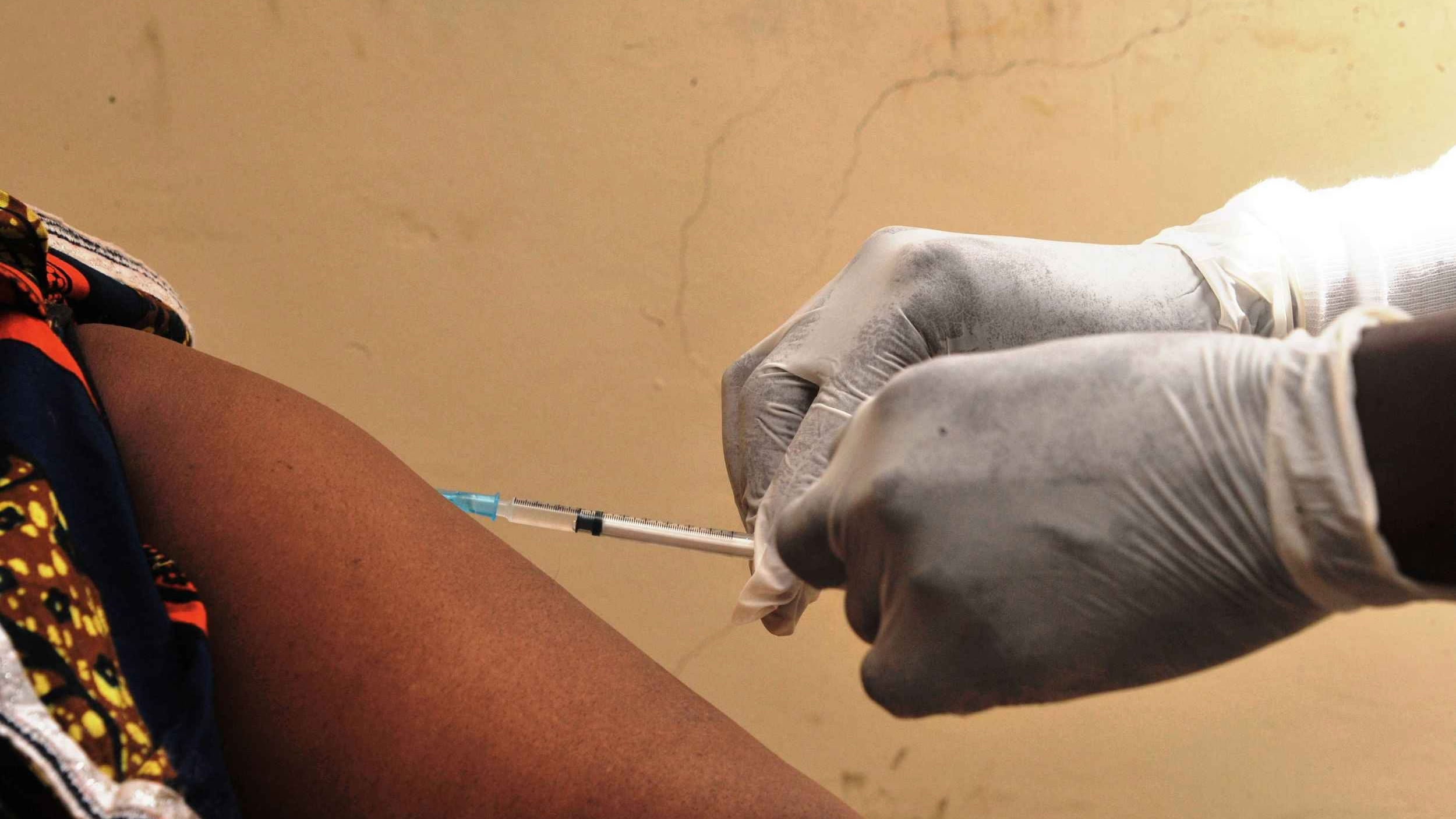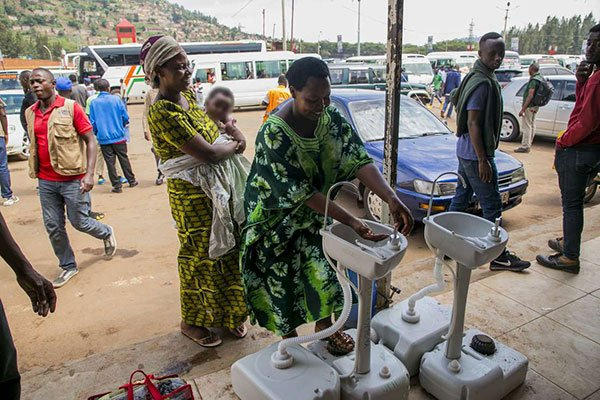
Editor's note: Stephen Ndegwa is a Nairobi-based communications consultant and international affairs columnist. The article reflects the author's views, and not necessarily those of CGTN.
Although there are a few countries in the world that are yet to record any infections or deaths as a result of the raging novel coronavirus (COVID-19) global pandemic, there might be none that will not be affected by the ramifications of the scourge in the foreseeable future.
If the current trend continues, Africa will be a case study of surviving economic stagnation in a pandemic, even as the continent grapples with other grave social, economic, and political crises.
Historically, Africa adopted systems of governance that have proved more of a liability than an asset. Various development models proposed to, and adopted by most African countries have backfired, leaving a trail of unfinished projects and struggling economies.
Now, according to data released on April 14 by the John Hopkins University and Africa Center for Disease Control, there were 15,346 confirmed cases, 835 deaths, and 2,946 COVID-19 recoveries recorded in 52 African countries. Lesotho and Comoros are still untouched by the pandemic.
Compared to global statistics, these numbers are negligible. Although experts have given several theories on the status quo, many African governments have decided to err on the side of caution, hoping that this is not the lull before the storm.
Rwanda, for instance, has instituted strict prevention measures, although it had 127 COVID-19 cases and zero deaths as reported on April 13 by the country's Ministry of Health. South Africa, Nigeria, Kenya, Uganda, Ethiopia, and Ghana have also laid down prevention strategies applied elsewhere in the world.
As Africa waits uneasily, unsure of whether things will remain as they are or get worse, the economic ramifications have started to bear. According to the United Nations Economic Commission for Africa (UNECA), COVID-19 has already cost African economies over 29 billion U.S. dollars, an amount equivalent to Uganda's 28.5 billion U.S. dollars in 2019.
In a press conference held in Addis Ababa mid-March, UNECA Executive Secretary Vera Songwe noted that the interconnectedness of Africa's economies to the European Union, China, and the U.S. was causing ripple effects in the continent mainly due to disruption of global supply chains.
Coupled with the foregoing is the depressed commodity prices and reduced demand for raw materials, which are Africa's economic mainstay. Consequently, Africa may lose half of its Gross Domestic Product, with growth falling from 3.2 percent to about two percent.

Several hand washing units have been installed in the main commuter parks in Kigali, Rwanda, March 16, 2020. /East African
Several hand washing units have been installed in the main commuter parks in Kigali, Rwanda, March 16, 2020. /East African
For instance, UNECA estimates that Nigeria's total exports of crude oil in 2020 will fall by between 14 billion and 19 billion U.S. dollars, with Africa export revenues from fuels tumbling by about 101 billion U.S. dollars in 2020.
The World Bank estimates that COVID-19 will push 45 million of Sub-Saharan Africa's 897 million people into poverty. On April 2, the World Bank approved 50 million U.S. dollars funding to Kenya, under the Kenya COVID-19 Emergency Response Project, to mitigate the social and economic effects of the pandemic. The World Bank has also extended monies to other African countries including the Democratic Republic of Congo, Ghana, Senegal, Rwanda, etc.
The continental COVID-19 response has also been activated, with the establishment of a 20 million U.S. dollars coronavirus fund by the African Union (AU). According to a recent AU report titled, "Impact of the Coronavirus (COVID-19) on the African Economy", the disruption of external direct trade links between African countries and affected partner continents like Europe, Asia, and the U.S. will gravely impact the hitherto receding African economies.
There are also ongoing economic mitigation initiatives at the national level. According to the former Central Bank of Kenya Governor, Dr Njuguna Ndung'u, several sectors in East Africa's largest economy will benefit from the pandemic, either directly or indirectly. These include the pharmaceutical industry and healthcare service, online entertainment and learning, IT solutions, e-commerce, digital banking, and retail electronic payment systems.
Nevertheless, in an interview published in the country's People Daily newspaper on April 14, Dr Ndung'u noted that African economies may not have much excuse about the impact of COVID-19. He says that while the pandemic may cut economic growth by half, it will simply exacerbate existing weaknesses, leading to a recession – which will be a global phenomenon anyway.
For African economies to survive in the medium to long term, economic experts recommend implementing reforms that promote comprehensive market development. This entails finding ways to stimulate pro-poor sectors like food, fuel, water, and power, in order to help the underprivileged cope with the current economic vagaries.
As the World Bank report recommends, African policymakers need to develop a survival strategy that involves "saving lives and protecting livelihoods." This includes coming up with short to long term measures for relief and recovery, respectively, aimed at fortifying the continent's weak health systems, ameliorating and safeguarding workers' wages, and advancing credit to viable businesses.
(If you want to contribute and have specific expertise, please contact us at opinions@cgtn.com)